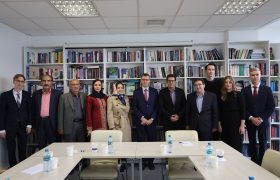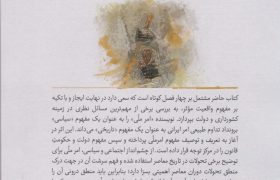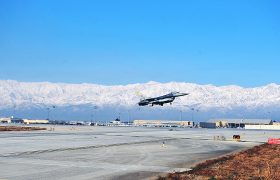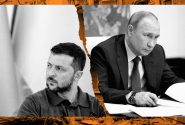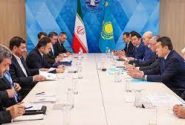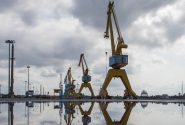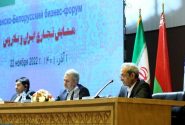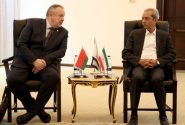Introduction
Traditionally, the South Caucasus—Armenia, Azerbaijan, and Georgia—has been within Russia’s orbit. For most of the post-Soviet era, Moscow consolidated regional power through military presence, conflict mediation (e.g., Nagorno-Karabakh), and alliances such as the Collective Security Treaty Organization (CSTO). However, Russia’s invasion of Ukraine in 2022 has greatly strained its ability to project power. The troop redeployments toward Ukraine and the Western sanctions greatly undermined Russia’s regional projection of power, essentially putting an end to what is often called a “Pax Russica” in the Caucasus 1. This geopolitical vacuum has created room for both regional and external players to deepen their engagement.
In the midst of these shifts, France has risen as a surprising but vigorous player. Guided by historical bonds, geopolitical strategy, and humanitarian impulses, Paris is moving into the breach left by Russia’s waning influence. France’s actions serve both strategically and normatively: they are an assertion of Armenian sovereignty, a reassertion of Western influence, and an attempt to counter regional rivals, notably Turkey. This article explores the ways in which Russia’s declining posture in the South Caucasus has opened the door to enhanced French involvement, examining Paris’s diplomatic outreach and military assistance to Armenia through a realist lens. It reflects on the implications of France’s challenge to Russian dominance within the dynamics of the broader region and the changing great-power competition.
The Erosion of Pax Russica
After the dissolution of the Soviet Union, Russia exerted influence in the South Caucasus for almost thirty years via military deployments, political leverage, and conflict mediation in the so-called frozen conflicts, including in Nagorno-Karabakh in 1994 and in 2020 2. After the 2020 Karabakh war, Moscow deployed around 2,000 peacekeepers and consolidated its role as the regional security guarantor 3. This status quo was beneficial for Russia strategically: Armenia relied on Russian security, Azerbaijan tolerated Moscow’s presence as the price for regaining territory, while ongoing reminders of Russian control were present for Georgia through the occupied regions (Abkhazia and South Ossetia).
Yet, Russia’s 2022 invasion of Ukraine greatly weakened and impaired its capabilities, which were reoriented away from the Caucasus and created a security vacuum of sorts 4. Russia’s reduced ability eroded its reliability as Armenia’s security patron. Most notably, Moscow and the CSTO ignored Armenia’s calls for assistance during Azerbaijani assaults in 2021 and 2022, prompting Armenia to begin a “strategic decoupling” from Russia 5. Subsequently, Azerbaijan took advantage of Russia’s distraction and ramped up pressure on Nagorno-Karabakh by blockading the Lachin Corridor without Russian intervention 6. In September 2023, Azerbaijan initiated a major military offensive, taking Nagorno-Karabakh despite the presence of Russian peacekeepers—who were killed in crossfire (2023 Azerbaijani offensive in Nagorno-Karabakh 7). By early 2024, Karabakh’s Armenian authorities had capitulated, and more than 100,000 ethnic Armenians had fled to Armenia 8. This outcome shattered the status quo that had been preserved by Russia since 2020, with Russia’s regional stronghold sharply reduced 9.
Armenia’s decision only went to show the extent of Russia’s fading hold. Prime Minister Nikol Pashinyan publicly condemned Moscow’s unreliability, turning Armenian security policy sharply toward Western partnerships. Armenia purchased Indian and French military systems, made statements about withdrawing from the CSTO, welcomed an EU monitoring mission at its border, held military exercises with the U.S., and ratified the ICC’s Rome Statute against Russian objections 10. These new developments symbolize a grave loss of influence from Russia’s perspective. Moscow no longer enjoys a monopoly on security or arms supplies to Armenia and is compelled to regard Azerbaijan more often as an equal than as a junior partner 11. As a result, Russia’s previously uncontested regional dominance is rapidly dissipating, creating conditions for external actors such as France to reshape the geopolitical landscape of the South Caucasus.
France’s Emerging Role in the Region
France’s expanded role in the South Caucasus is a direct result of Russia’s declining regional influence. France historically has close cultural and political ties with Armenia, bolstered by a sizable Armenian diaspora and early recognition of the Armenian Genocide 12. As a former co-chair of the OSCE Minsk Group, France had long indicated an interest in regional diplomacy, despite the failure to achieve lasting peace in the region 13. Most recently, in stark contrast to past trends, President Emmanuel Macron has taken a vocal stance positioning France as Armenia’s patron, consistent with France’s more expansive objective to protect Christian minorities and secure France a prominent role on the world stage.
As Russian power has declined, French diplomatic maneuvers have become bolder. Paris condemned Azerbaijan’s 2023 offensive in Nagorno-Karabakh publicly, with Macron denouncing Azerbaijani aggression more forcefully than other Western leaders. French officials raised the diplomatic ante during the crisis, notably at the UN and EU levels, including Foreign Minister Catherine Colonna’s personal visit to Armenia. France also expanded Armenia’s defensive force structure and military capacity beyond diplomacy by equipping it with high-end weapons systems, including the Thales GM200 radars, and by opening negotiations for MBDA Mistral missiles 14. In June 2024, a landmark deal brought France’s CAESAR self-propelled howitzers to Armenia, significantly reducing Armenia’s historical dependence on Russian arms 15.
French support includes more than military aid. Macron openly reaffirmed his country’s commitment to Armenian independence, territorial integrity, and democracy, criticized Azerbaijan in European forums, facilitated the deployment of EU border monitors, and dispatched humanitarian aid to the beleaguered state 16. These moves represent a shift from France’s previous careful neutrality to openly backing Armenia against Azerbaijani pressure, placing Paris at the vanguard of a larger Western re-engagement. The U.S. and EU have also been stepping up their involvement, hosting negotiations and providing diplomatic support, but France’s proactive approach is unique, highlighted by symbolic gestures such as the resolution put forth by the French Senate in late 2022 calling for sanctions against Azerbaijan 17.
From a strategic perspective, France’s motivations mix realism and idealism. Paris wants regional stabilization, support for democratic governance, and influence in a historically Russian sphere of control. Moreover, its support for Armenia offsets Turkey’s growing regional influence, reflecting longstanding France–Turkey rivalries elsewhere (e.g., Libya, Eastern Mediterranean, and etc.) Domestically, Macron has much to gain politically from backing a cause that resonates deeply within the French-Armenian community.
However, the limits of France’s regional ambitions are clear. As Armenia is landlocked and far from Paris, France has no direct military area of influence, relying instead on backchannel diplomacy and arms sales. France’s role has galvanized broader Western concern, but it cannot alone serve as the security guarantor Russia once was in the South Caucasus. Paris, mindful of this limitation, seeks broader EU and NATO support for Armenia, although its recent firmness has dramatically escalated tensions with Azerbaijan and Russia, creating a diplomatically precarious environment.
Geopolitical Implications and Risks
France’s growing role in the South Caucasus is a challenge to traditional Russian influence and represents a confrontation within a more complex multipolar contest involving Russia, Turkey, Iran, and Western powers. This geopolitical realignment comes with risks as well as opportunities.
Russia
Moscow sees France’s increasing engagement as threatening its historic sphere of influence, depicting French military assistance to Armenia as provocative actions deepening regional instability 18. Although diminished by its conflict in Ukraine, Russia still holds leverage through military bases and political influence within Armenia, including pro-Russian factions. If France’s support excessively emboldens Armenia, Russia may retaliate indirectly, either by strengthening ties with Azerbaijan or by politically undermining Armenia’s government. Indeed, Russia has strengthened its relationship with Azerbaijan, potentially tolerating Baku’s moves in return for loyalty during the Ukraine crisis. The net impact may be reduced regional influence for Russia, exacerbating regional polarization and potentially driving Moscow closer toward cooperation with Turkey and Iran 19.
Turkey
Turkey, a staunch ally of Azerbaijan and a historical backer of Baku’s military advances in Nagorno-Karabakh, rejects French intervention. Turkey views the Caucasus as strategically significant, historically pursuing a balance between competition and cooperation with Russia, as demonstrated by their joint monitoring center established after 2020. France’s activism destabilizes this equilibrium and adds complexity to NATO dynamics, exacerbating existing tensions between Turkey and France. Ankara would likely oppose any French initiative to position NATO security forces in Armenia and could potentially intervene militarily on Azerbaijan’s side if hostilities escalate, particularly over transit routes such as the Zangezur corridor 20. Thus, French regional initiatives must carefully consider Turkey’s proactive stance to avoid undermining NATO cohesion or escalating tensions into broader conflict.
Iran
Iran has layered strategic interests in the South Caucasus, reflective of ethnic Azeri populations, historical ties with Armenia, and regional rivalries. Traditionally, Tehran prefers Armenia to constrain Azerbaijani nationalism and prevent the spread of Turkish power across its northern border. Enduringly wary of Western military deployments, Iran quietly tolerates France’s arms transfers to Armenia as a stabilizing factor against Turkish-Azerbaijani hegemony. However, Tehran vehemently opposes any Western or NATO military presence in Armenia and has warned it would militarily resist any Azerbaijani attempt to force territorial changes, such as a corridor cutting off Iranian access to Armenia 21. French involvement thus carries risks of unintended escalation, potentially driving Iran toward closer cooperation with Russia or even provoking direct confrontation if Azerbaijan and Turkey continue pursuing their territorial ambitions.
Western Alliance Dynamics
France’s assertive policy in the South Caucasus tests Western coherence, particularly within NATO and the EU. While Paris firmly supports Armenia, other European states—dependent on Azerbaijani energy resources—remain cautious about antagonizing Baku. EU leaders, such as Ursula von der Leyen, have emphasized Azerbaijan’s importance as an energy partner, limiting the bloc’s willingness to decisively sanction Azerbaijan 22. Concurrently, NATO itself faces internal strains, as Turkey opposes France’s stance, complicating a united front. The United States and United Kingdom have pursued supportive yet less direct actions, emphasizing regional stability rather than direct confrontation with Azerbaijan. This context leaves France somewhat isolated, raising considerable risks: should Azerbaijan escalate militarily, it remains uncertain whether France’s NATO allies would substantively back Armenia or leave Paris diplomatically exposed.
In short, deeper French involvement could either stabilize the region by deterring Azerbaijani aggression or, conversely, propel greater conflict through increased tensions with Russia and Turkey. Therefore, the South Caucasus stands as one of the chief tests not just for Western resolve but also for the evolving balance of power in an increasingly post-Russian regional order.
Risks of Escalation vs. New Security Order
The ongoing geopolitical realignment in the South Caucasus offers a significant opportunity for a stable and multipolar security solution but also poses considerable risks of escalation. France’s deeper involvement, such as military assistance to Armenia and EU border monitoring, might help prevent further Azerbaijani moves by raising the potential costs of military escalation 23. In an ideal world, an international settlement might be established, in which several powers—including a weakened but cooperative Russia—secure Armenia’s territorial integrity, Azerbaijan’s sovereignty, and free trade routes across the region under multinational supervision.
Risks of escalation remain high, however. Azerbaijan’s recent successes have fueled nationalist aspirations, including the disputed “Zangezur corridor” through Armenian territory, which Armenia regards as an existential threat. If Azerbaijan continues pursuing this goal militarily, Armenia may well appeal for more direct Western intervention. Such solutions, once largely hypothetical, are now openly discussed, including previously improbable scenarios like the insertion of French military advisors or peacekeepers into Armenia under an international mandate 24. Such measures could quickly heighten tensions, potentially leading to confrontation with Turkey or Russia, exacerbating the security dilemma in which defensive measures by one side trigger countermeasures from the other.
The involvement of numerous parties—France, Russia, Turkey, Iran, the EU, and the U.S.—heightens the risk that misinterpretations or unintended escalation could emerge from localized incidents. Any border clash could quickly be viewed as part of broader great-power competition, potentially drawing major powers into direct or indirect intervention. France’s assertive approach, while strengthening Armenia’s military capabilities, could leave Paris diplomatically isolated, limiting its ability to coordinate actions multilaterally within NATO and the EU.
The economic stakes are significant. Azerbaijan’s strategic importance as an energy supplier grants it considerable leverage over European states dependent on Caspian hydrocarbons. French corporations, such as TotalEnergies, risk backlash from declining France–Azerbaijan relations, while wider regional instability could threaten critical energy infrastructure, including the BTC pipeline and Southern Gas Corridor. Maintaining diplomatic pressure on Baku while preserving necessary energy cooperation is a challenging diplomatic balancing act, potentially explaining France’s somewhat cautious approach.
In sum, the French endeavor to reshape the security landscape in the South Caucasus represents not only a unique strategic opportunity to create a balanced, multilateral order in the region but also considerable risks of inciting additional regional destabilization. Success depends on careful diplomacy and clearly defined red lines among rival powers, preventing escalation into inter-bloc conflict within a broader geopolitical confrontation.
Conclusion
The erosion of Russia’s influence in the South Caucasus has created space for an uptick in French engagement, motivated both by geopolitical interest and historical solidarity with Armenia. France’s actions undermine Moscow’s historic role as regional hegemon, providing smaller states like Armenia with alternative security partnerships and potentially enhancing their sovereignty. Azerbaijan, emboldened but now under greater international scrutiny than before, must navigate increased Western pressure against its ambitious territorial objectives 25.
This geopolitical realignment is deeply rooted in realist theory: as Russia’s regional power diminishes due to its engagement in Ukraine, other actors naturally move into the resulting vacuum. The outcome—a multipolar competition involving Turkey, Iran, France, the EU, and the U.S.—opens opportunities for a more balanced security architecture, yet simultaneously increases the risks of miscalculation and competition among these various actors 26. This contest unfolds within broader regional dynamics, illustrating how Russia’s setbacks could facilitate increased Western presence across former Russian spheres of influence.
The challenge for France lies in balancing its assertive support of Armenia without provoking escalation or isolating itself from NATO allies who remain cautious of antagonizing Turkey or Azerbaijan, both major energy suppliers for Europe. For Russia, Turkey, and Iran, a pluralistic security arrangement—and greater willingness to accept Western involvement rather than reflexively resisting it—could enhance regional stability.
The erosion of Pax Russica is irreversible, and the South Caucasus now finds itself at a crossroads. Whether current tensions coalesce into a stable multipolar equilibrium or devolve into protracted instability depends on diplomatic prudence and cooperation among all stakeholders. What is clear is that the future of the South Caucasus will be fundamentally different from the past—its new order currently forged in the capitals of Yerevan, Baku, Paris, Moscow, Ankara, Tehran, and beyond.
Endnotes
- Roubanis, I. “Why Iran sees the Caucasus as part of the Middle East.” European Security & Defence, 31 Jan. 2024.
- Tomczyk, J. “Strategic Erosion: Russia and the South Caucasus after the Invasion of Ukraine.” Stanford International Policy Review, 4 Dec. 2023.
- Tomczyk, J. “Strategic Erosion: Russia and the South Caucasus after the Invasion of Ukraine.” Stanford International Policy Review, 4 Dec. 2023.
- Tomczyk, J. “Strategic Erosion: Russia and the South Caucasus after the Invasion of Ukraine.” Stanford International Policy Review, 4 Dec. 2023.
- Tomczyk, J. “Strategic Erosion: Russia and the South Caucasus after the Invasion of Ukraine.” Stanford International Policy Review, 4 Dec. 2023.
- Tomczyk, J. “Strategic Erosion: Russia and the South Caucasus after the Invasion of Ukraine.” Stanford International Policy Review, 4 Dec. 2023.
- Dubow, B. “New Caledonia Riots: The Azerbaijan Factor.” The Diplomat, 22 May 2024.
- “2023 Azerbaijani offensive in Nagorno-Karabakh.” Wikipedia, 15 Feb. 2025.
- “Nagorno-Karabakh Conflict.” Global Conflict Tracker, Council on Foreign Relations, 20 Mar. 2024.
- Tomczyk, J. “Strategic Erosion: Russia and the South Caucasus after the Invasion of Ukraine.” Stanford International Policy Review, 4 Dec. 2023.
- Tomczyk, J. “Strategic Erosion: Russia and the South Caucasus after the Invasion of Ukraine.” Stanford International Policy Review, 4 Dec. 2023; RFE/RL’s Armenian Service. “France Hails Deal To Provide Armenia With Howitzers As ‘New Important Milestone’.” Radio Free Europe/Radio Liberty, 18 June 2024.
- Tomczyk, J. “Strategic Erosion: Russia and the South Caucasus after the Invasion of Ukraine.” Stanford International Policy Review, 4 Dec. 2023.
- Aarup, S. A. “Azerbaijan leader: ‘France would be responsible’ for any new conflict with Armenia.” POLITICO, 8 Oct. 2023.
- Leon, B., and S. Rzegocki. “Can France Rescue Armenia From its Security Isolation?” Center for European Policy Analysis, 1 July 2024.
- Ngendakumana, P. E., and G. Gavin. “Russia accuses France of fomenting war in the Caucasus with arms sale.” POLITICO, 19 June 2024.
- RFE/RL’s Armenian Service. “France Hails Deal To Provide Armenia With Howitzers As ‘New Important Milestone’.” Radio Free Europe/Radio Liberty, 18 June 2024; Leon, B., and S. Rzegocki. “Can France Rescue Armenia From its Security Isolation?” Center for European Policy Analysis, 1 July 2024.
- Leon, B., and S. Rzegocki. “Can France Rescue Armenia From its Security Isolation?” Center for European Policy Analysis, 1 July 2024.
- Dubow, B. “New Caledonia Riots: The Azerbaijan Factor.” The Diplomat, 22 May 2024.
- Ngendakumana, P. E., and G. Gavin. “Russia accuses France of fomenting war in the Caucasus with arms sale.” POLITICO, 19 June 2024.
- Kaleji, V. “France’s New and Unbalanced Approach in the South Caucasus.” Valdai Discussion Club, 17 July 2024.
- Dubow, B. “New Caledonia Riots: The Azerbaijan Factor.” The Diplomat, 22 May 2024.
- Dubow, B. “New Caledonia Riots: The Azerbaijan Factor.” The Diplomat, 22 May 2024.
- Dubow, B. “The Azerbaijan Factor in New Caledonia Riots.” The Diplomat, 2024.
- Ngendakumana, P. E., and G. Gavin. “Russia accuses France of fomenting war in the Caucasus with arms sale.” POLITICO, 19 June 2024.
- Ngendakumana, P. E., and G. Gavin. “Russia accuses France of fomenting war in the Caucasus with arms sale.” POLITICO, 19 June 2024.
- Ngendakumana, P. E., and G. Gavin. “Russia accuses France of fomenting war in the Caucasus with arms sale.” POLITICO, 19 June 2024.
- Roubanis, I. “Why Iran sees the Caucasus as part of the Middle East.” European Security & Defence, 31 Jan. 2024.



